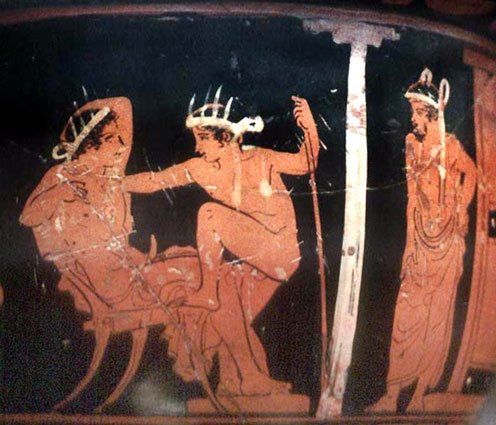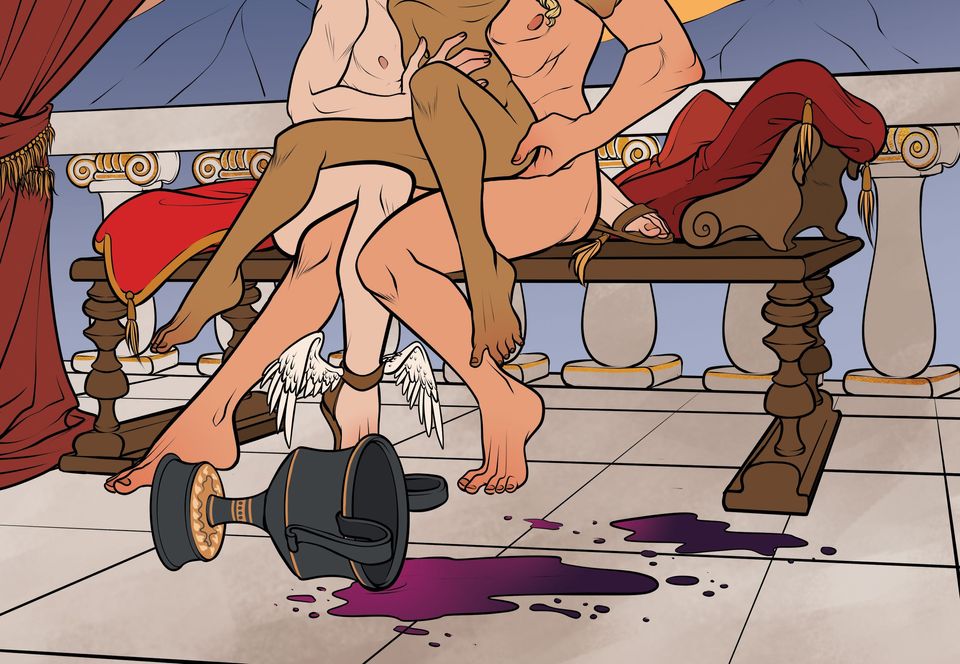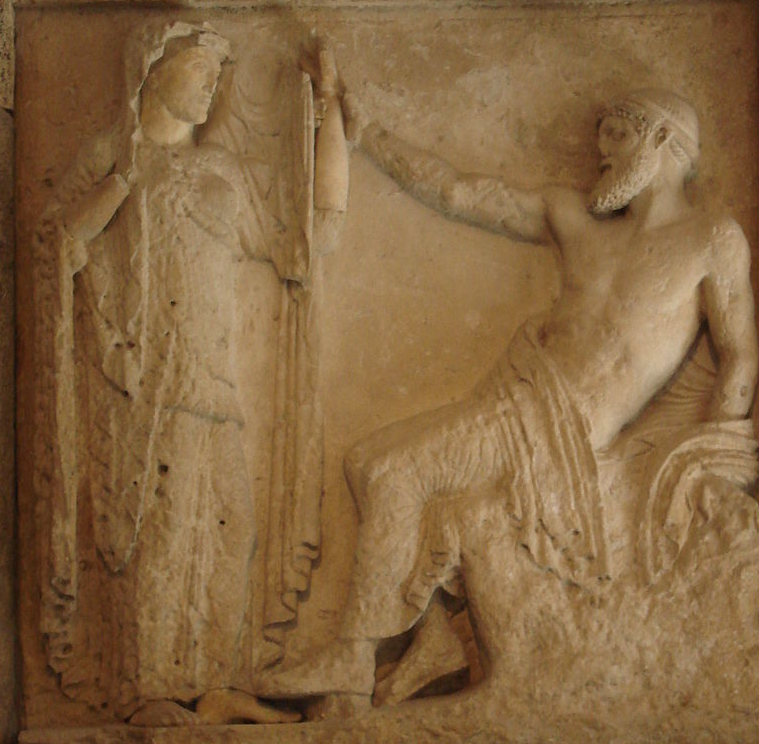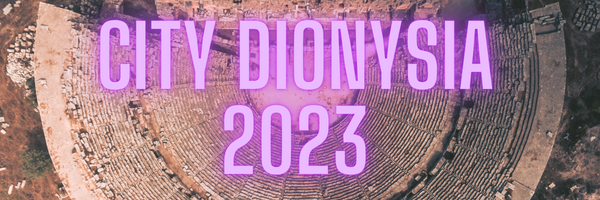Mythology Monday: Disability in Greek Mythology
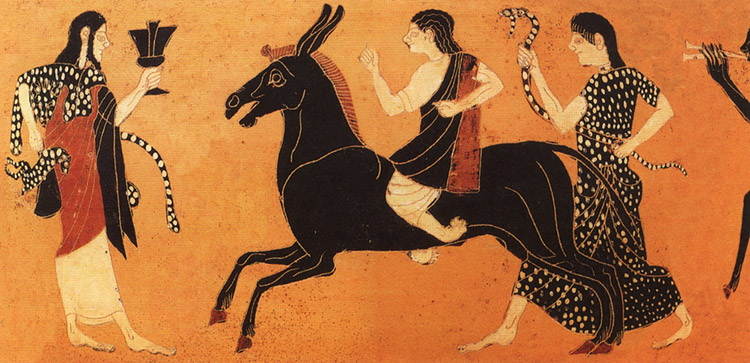
This week's #MythologyMonday theme is disability. In this article, I'm introducing characters from Greek mythology who are disabled. If you would like to learn more about the real life history of disability in ancient Greece, I recommend the Partial Historians' special podcast episode with Dr. Debby Sneed. Disability was quite common in the ancient world, caused not just by conditions from birth but by injury, malnutrition, war, and old age in the absence of the kind of aids we have today. Despite the popular belief that disabled children were exposed, Dr. Sneed presents evidence to the contrary in the form of medical texts that discuss the treatment of clubfoot and shrunken arm in infants. In ancient Athens, there even was a kind of disability pension paid by the polis, the city state. Listen to this very interesting episode here!
Hephaistos
The most famous disabled person in all of Greek mythology has to be Hephaistos, the God of Smiths and Crafts. He was born disabled and thrown from the height of Mount Olympos by his mother Hera as an infant or by his father Zeus when he was older, with the injury from the fall causing his disability.
Thetis of the silver feet came to the house of Hephaistos imperishable, starry, and shining among the immortals, built in bronze for himself by the god of the dragging footsteps. She found him sweating as he turned here and there to his bellows busily [...] ‘Then there is a goddess we honour and respect in our house. She saved me when I suffered much at the time of my great fall through the will of my own brazen-faced mother, who wanted to hide me for being lame. Then my soul would have taken much suffering had not Eurynome and Thetis caught me and held me [...] Therefore set out before her fair entertainment while I am putting away my bellows and all my instruments.’
He spoke, and took the huge blower off from the block of the anvil limping; and yet his shrunken legs moved lightly beneath him. He set the bellows away from the fire, and gathered and put away all the tools with which he worked in a silver strongbox. Then with a sponge he wiped clean his forehead, and both hands, and his massive neck and hairy chest, and put on a tunic, and took up a heavy stick in his hand, and went to the doorway limping. And in support of their master moved his attendants. These are golden, and in appearance like living young women. There is intelligence in their hearts, and there is speech in them and strength, and from the immortal gods they have learned how to do things. These stirred nimbly in support of their master, and moving near to where Thetis sat in her shining chair.
Homer, Iliad 18. 136
Among his epithets we find amphigyeeis ("lame on both sides") and kyllopodiôn ("clubfooted") referencing his disability. The toxic materials handled by ancient smiths on a daily basis can cause lameness through arsenical neuritis in real life, something that may be reflected in Hephaistos' disability.
Graiai
The Graiai are three goddesses that the hero Perseus encounters on his quest to slay Medusa. In the version recorded in the Library of Pseudo-Apollodoros, Perseus asks them for the way to the dwelling of the Hesperides, the nymphs that would equip him with a knapsack, winged sandals, and he helmet of Hades that makes the wearer invisible. The Graiai share one eye and one tooth among them. Perseus snatches the eye and tooth, giving them back in exchange for directions.
In the version we find in Pseudo-Hyginus' Astronomica, the Graiai are guarding the gorgon's place taking turns using the single eye shared among them. Perseus also snatches the eye in this version but since the Graiai are guards and not merely withholding information, he throws the eye into Lake Tritonis in order to pass them.
Teiresias
Teiresias was a blind seer who often appears as a mentor or counsellor to other mythological characters like King Kadmos of Thebes in The Bacchae, Oedipus in Oedipus the King, or (after his death!) Odysseus in the Odyssey. Teiresias spent several years of his life transformed into the opposite of his sex at birth. Sometimes born male, sometimes female, the sex changes throughout his life are a constant.
Thus, when Hera and Zeus were arguing as to whether men or women enjoy sex more, they put the question to Teiresias. He said that on a scale of ten, women enjoy it nine times to men's one. Whereupon Hera blinded him, and Zeus gave him the power of prophecy.
Pseudo-Apollodorus, Bibliotheca 3. 71
Phineus
Phineus is a blind king in Greek mythology. The reasons for his blindness are quite diverse, ranging from hybris to arranging the death of his own sons. A scholia on the Odyssey notes that when Zeus asked Phineus if he preferred to die or lose sight as punishment for having his sons killed by their stepmother, Phineus chose the latter, offending Helios. In another version Helios blinds Phineus himself to help his son Aeëtes because Phineus had thrown his lot in with Aeëtes' enemies. But the best known version is told in the Argonautica:
"Phoibos [Apollon] had once endowed this man [King Phineus] with prophetic powers but the gift had brought on him the most appalling tribulations. For he showed no reverence even for Zeus, whose sacred purposes he did not scruple to disclose in full to all. Zeus punished him for this by giving him a lingering old age, without the boon of sight."
Apollonius Rhodius, Argonautica 2. 179
Orion
In Orion's case, Helios is the one to restore his eyesight instead of blinding him. The original pissbaby, Orion was born from the urine of Zeus, Poseidon, and Hermes on a cowhide that they buried in the earth (Gaia). He was blinded for raping Merope, the daughter of King Oinopion of Chios.
"He came to Lemnos as a beggar and there met Hephaistos who took pity on him and gave him Kedalion his own servant to guide him. So Orion took Kedalion upon his shoulders and used to carry him about while he pointed out the roads. Then he came to the east and appears to have met Helios and to have been healed."
Hesiod, Astronomy Fragment 4
Oedipus
Oedipus or Oidipous ("swollen foot") is best known for fulfilling the prophecy of killing his father and marrying his mother. Oedipus' father Laius consulted the Oracle of Delphi because he and his wife Jocasta were childless. The Pythia, Apollon's priestess, prophecised that any son of Laius would kill him. When the couple indeed conceived a son, Laius had the baby boy's ankles pierced and bound so he couldn't crawl and Jocasta gave him to a servant for exposure to avoid the prophecy's dire fate. Exposure was a way to get rid of unwanted infants in ancient Greece and Rome that wouldn't offend the gods because technically the child could be saved and brought up by someone else, something that did happen frequently in real life and in myth. Also in this one, in which little Oedipus was taken by a shepherd who brought him to the childless king and queen of Corinth who adopted him and named him after the swelling from the injuries to his feet and ankles. After learning that he had killed his (biological) father and married his (biological) mother, Oedipus blinds himself or is blinded by a servant of Laius.
"As for the boy, three days after he was born, the king had his ankles pinned and then handed him to someone to take him to some forest where no human ever went."
Jocasta in Oedipus the King by Sophokles
Further Reading (and Listening)
The Partial Historians: Special Episode – Disability in Ancient Greece with Dr Debby Sneed
The Staff of Oedipus: Transforming Disability in Ancient Greece by Martha L. Rose
Disability History and the Ancient World Bibliography, run by Christian Laes
Lame Hephaistos, portrayals of Hephaistos' disability in vase paintings by Maura Brennan
Perseus' Quest for the Head of Medusa, theoi.com
